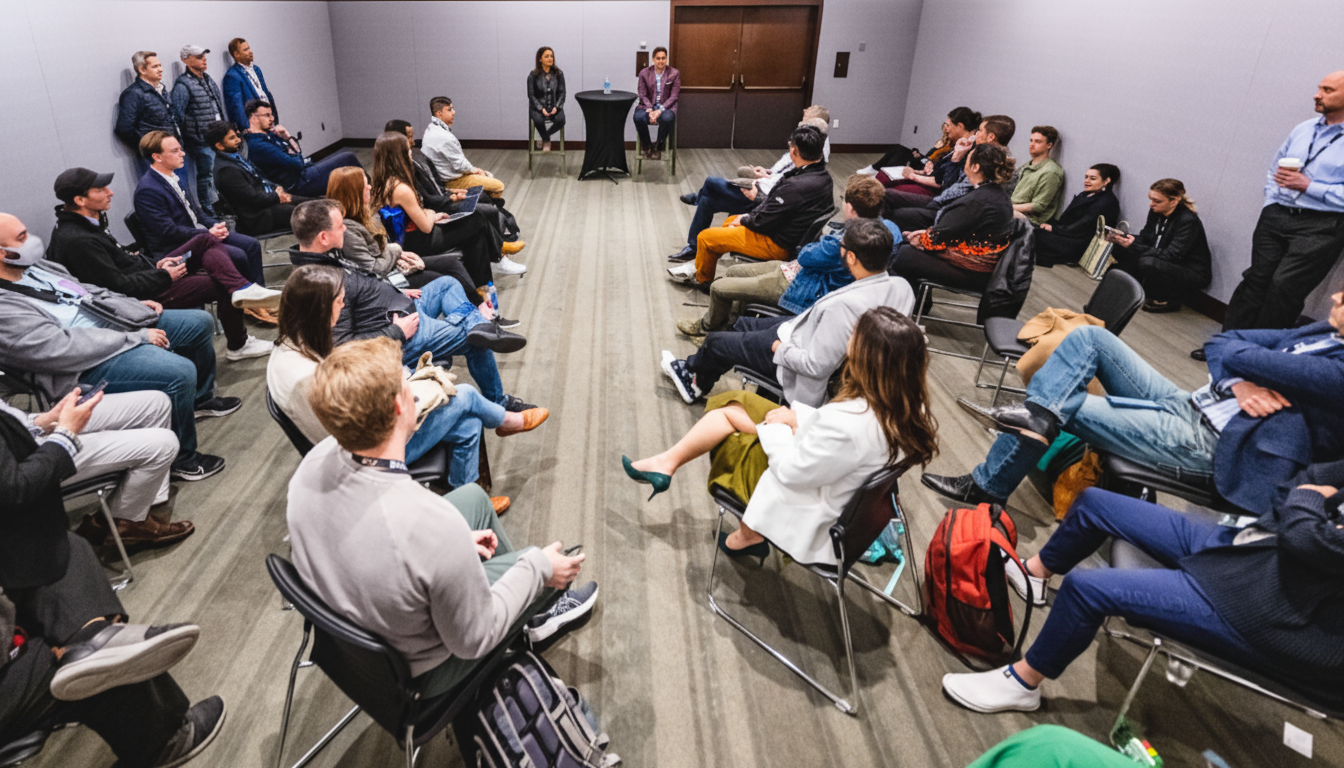The full slate of interactive roundtables for Disrupt 2025 is live, and it reads like a cross‑section of what founders, operators, and investors are wrestling with right now. Spread across three rooms and built for hands‑on participation, these sessions favor live problem‑solving over slide decks, with several offering encore slots to meet demand.
AI Safety, Infrastructure, and Vertical Plays
From the stack to the surface area, AI dominates the agenda. Base10 Partners’ Caroline Broder anchors a discussion on vertical AI and industry‑specific software, zeroing in on where domain depth beats generalist tooling for defensibility and distribution. That thesis runs alongside conversations on agentic workflows led by SuperAI’s Brad Cordova and Benjamin Kwon, and a builder‑to‑builder forum with Fireworks AI’s Aishwarya Srinivasan on what’s actually working with open models.

Safety moves from principle to practice with Anthropic’s Kyla Guru sharing model cyber safety and alignment approaches, and Meta’s Rohit Patel detailing how to evaluate and deploy systems responsibly at scale. Expect references to the NIST AI Risk Management Framework and emerging obligations under the EU AI Act—guidelines increasingly shaping procurement and enterprise adoption.
On the data plane, Airbyte co‑founder Michel Tricot tackles the “AI‑ready” gap—how early teams move beyond ingestion to capture business context, improve retrieval, and tame cost curves as context windows expand. Reddit’s Rachel Miller brings hard lessons from scaling search and ML for massive communities, including practical safeguards for relevance, safety, and bias mitigation.
Hardware‑meets‑software also gets time: Obvious Ventures’ Kahini Shah explores the realities of physical AI—limited datasets, expensive deployments, and the messy edge cases of real‑world environments—where pilots can’t be faked and unit economics decide survivability.
Fintech, Funding, and the Path to a Successful IPO
AI’s impact on money flows is front and center with 645 Ventures’ Nnamdi Okike mapping where fintech startups can carve an edge—risk scoring, compliance automation, and real‑time underwriting—while flagging model drift, data rights, and regulatory scrutiny as must‑solve risks.
For founders eyeing milestones, Prelude Ventures’ Gabriel Kra offers a reality check on raising a Series A and maintaining post‑round momentum. Reports from PitchBook and Carta continue to show a more selective market than the 2021 peak, which makes customer validation and capital efficiency critical signals.
Carta CFO Charly Kevers and Morgan Stanley’s Daniel Tay unpack the journey from private to public, from audit readiness to investor education. Their message reflects a broader reset: durable revenue quality, not just growth at any cost, is the currency that clears the gate to the public markets.
Investor‑operator perspectives continue with Silicon Valley Venture’s Brian Sparkes and Recursive Ventures’ Itamar Novick on what makes a startup truly fundable, and SemperVirens’ Allison Baum Gates on building repeatable enterprise go‑to‑market engines. Saga Ventures’ Ben Braverman dives into “second‑order AI” opportunities—infrastructure, orchestration, and workflow layers—where the next defensible moats are forming.

Space, Government, and Frontier Procurement
UC Berkeley lecturer and investor Abhi Kumar leads a roundtable on commercializing low Earth orbit, a timely discussion as public‑private partnerships accelerate ahead of the International Space Station’s retirement. Expect references to commercial station initiatives and defense‑adjacent applications where dual‑use pathfinding is vital for early traction.
On the public sector side, XYZ Venture Capital’s Ross Fubini and Legion Intelligence’s Ben Van Roo examine how governments are adopting AI and what that means for procurement cycles. With guidance emerging from the U.S. Office of Management and Budget and the UK’s AI assurance pilots, startups must map their compliance story as tightly as their product roadmap.
Communities, Consumers, and Creator Strategy
Kindred’s Tasneem Amina and Justine Palefsky share how trust and community at scale can be a growth engine, a theme echoed by Vently’s team on the power of hyper‑local networks—personalization and proximity as the new distribution. InMobi co‑founder Piyush Shah explores how Gen Z is shaping consumer AI usage, with strong signals that chat‑first and video‑native experiences win attention.
UP10Media’s Uptin Saiidi and Peter Sleiman get tactical about creator‑grade video for founders—authentic, fast, and budget‑light—while EllieMD’s Hanieh Sigari adds playbooks for turning everyday moments into durable brand equity. Cloudflare’s Alex Malebranche spotlights founder mental health as a performance multiplier, not a luxury, a point underscored by research linking psychological safety to team velocity.
Education, Founder Formation, and Building Trust
A live demonstration of the Berkeley Method of Entrepreneurship—with a pitch from a UC Berkeley Sutardja Center‑founded company—illustrates journey‑based learning in action. Entrepreneurs First’s Alice Bentinck outlines how structured matching and rapid validation turn global talent into co‑founders at scale.
Rounding out the human side of venture, Superconnected’s Mabel Chan and 500 Global’s Ella Shukho explore how generosity and transparency underpin enduring founder‑investor relationships. In a market where McKinsey reported 65% of organizations tried generative AI last year, trust and differentiation—not just novelty—separate signal from noise.
How to Work the Rooms for Maximum Roundtable Value
Roundtables are capped for conversation, not broadcasts, so arrive early, bring specific questions, and prioritize sessions with encores if your schedule is tight. With three rooms running in parallel, grouping your picks by theme—AI stack, capital markets, or go‑to‑market and community—can help you capture compounding insights across adjacent topics.
The throughline across this lineup is pragmatic intensity: real metrics, live demos, and the unvarnished lessons that rarely make keynote stages. If you’re building, buying, or backing the next wave, the roundtables are where the playbooks get written in real time.

